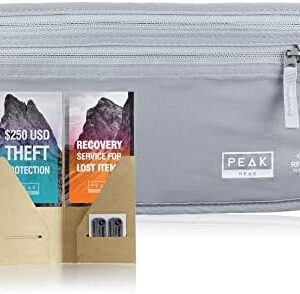Traveling can be an exciting and enriching experience. Whether you’re jetting off to a faraway tropical destination or exploring the sights and sounds of a new city, there’s something magical about stepping outside of your everyday routine and immersing yourself in a new culture.
But before you embark on your next adventure, it’s important to take care of your health and well-being. One of the key components of staying healthy while traveling is making sure you have the necessary vaccinations to protect yourself from various diseases that may be prevalent in the region you are visiting.
So, what exactly are travel vaccines, and why do you need them? In a nutshell, travel vaccines are shots that are specifically designed to protect you against diseases that are common or endemic in certain parts of the world. These vaccines work by stimulating your immune system to produce antibodies against the specific pathogen, so that if you come into contact with the disease while traveling, your body will be better equipped to fight it off.
There are a number of different vaccines that may be recommended depending on your destination and travel itinerary. Some of the most common vaccines that travelers may need include hepatitis A and B, typhoid, yellow fever, rabies, and Japanese encephalitis. The specific vaccines you need will depend on a number of factors, including where you are traveling, how long you will be staying, and what activities you will be engaging in.
It’s important to plan ahead when it comes to travel vaccines, as some vaccines may require multiple doses over a period of weeks or even months in order to be effective. Ideally, you should visit a travel health clinic or your healthcare provider at least 4-6 weeks before your trip to discuss your travel plans and determine which vaccines you may need.
In addition to getting the necessary vaccines, there are a number of other steps you can take to protect your health while traveling. This includes practicing good hygiene, such as washing your hands frequently with soap and water, and avoiding contact with animals, particularly in rural areas where rabies may be a concern.
It’s also a good idea to pack a travel health kit with essentials such as over-the-counter medications, sunscreen, insect repellent, and first aid supplies. You should also make sure you have adequate travel insurance that covers medical emergencies and evacuation, as healthcare can be expensive in some countries.
While travel vaccines are an important aspect of staying healthy while traveling, it’s also worth noting that they are not foolproof. No vaccine is 100% effective, and there is always a small risk of contracting a disease even if you have been vaccinated. That’s why it’s important to take other precautions, such as using insect repellent to prevent mosquito bites and practicing safe food and water hygiene.
It’s also important to be aware of any potential side effects of travel vaccines. While most side effects are mild and temporary, such as soreness at the injection site or a low-grade fever, in some cases more serious reactions can occur. That’s why it’s important to discuss any concerns you may have with your healthcare provider before getting vaccinated.
In addition to protecting yourself, getting vaccinated before you travel can also help protect the local population in the country you are visiting. By reducing your risk of contracting and spreading diseases, you can help prevent outbreaks and contribute to global health security.
In conclusion, travel vaccines are an essential part of staying healthy while traveling. By taking the time to research and get the necessary vaccines before you embark on your next adventure, you can protect yourself and others from potentially harmful diseases. So before you pack your bags and head off on your next journey, make sure you’ve taken care of your health first. Safe travels!





